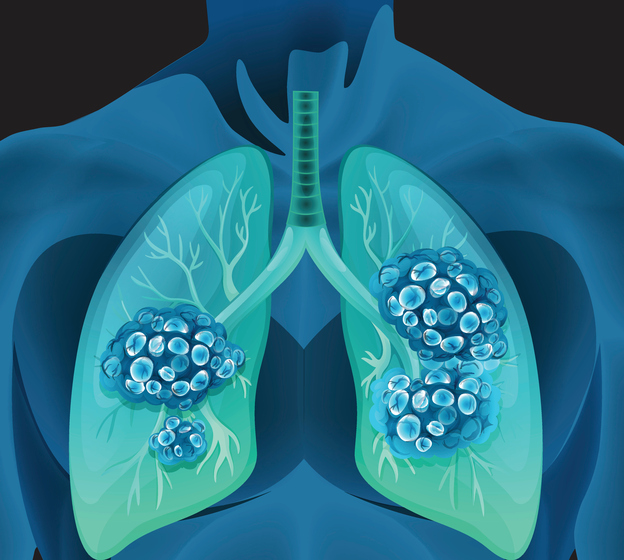Fitness
The Role of AI in Empowering Early Lung Cancer Detection & Transforming Patient Outcomes – MedCity News

Lung cancer remains the single most common etiology of cancer-related mortality globally, with most patients diagnosed at advanced stages when treatment efficacy is limited. Detecting lung cancer earlier can significantly improve survival rates, with a greater than 90% survival rate when treatment commences at stage 1.
While traditional lung cancer screening programs based on age and smoking history have contributed to addressing increasing cancer rates, targeting specific patient groups for screening is only one aspect of the lung cancer detection equation, especially with low screening uptake rates today.
Artificial Intelligence (AI) applied to lung cancer detection can augment our current ability to identify and treat patients well beyond the scope of conventional screening. As the most utilized initial imaging modality worldwide, chest X-rays present an opportunity to identify small suspicious lung nodules long before symptoms manifest. Frequently captured incidentally, this enables earlier cancer detection and enhances patient survival rates.
AI’s potential to expand proactive lung cancer detection
AI can serve as an effective tool to optimize opportunistic lung cancer screening. One study demonstrated that AI chest X-ray solutions could achieve exceedingly high negative predictive values of 99.8% and impressive AUC (Area Under Curve) scores of 91.5% for detecting lung nodules, highlighting their potential to accurately identify early indicators of lung cancer from routine chest X-rays. This is especially useful as radiologists come under increasing pressure to report X-rays quickly due to staffing challenges.
Collaborative efforts between leading healthcare AI companies and global biopharmaceutical companies exemplify AI’s transformative potential in combating lung cancer worldwide. These partnerships support international initiatives to apply AI to surveillance efforts in identifying lung cancer risk in millions of routine chest X-rays, providing a cost-effective and high-impact approach to ensuring that at-risk patients receive appropriate care.
Preliminary results from AI-powered trials aimed at earlier lung cancer diagnosis using general practitioners or primary care physician-referred chest X-rays in outpatient hospital settings have shown encouraging outcomes. By triaging chest X-rays with AI and referring patients for CT scans within 24 hours, the time to treatment has been reduced from 64 to 25 days. This amount of time approximates the duration it takes for a patient to advance a full stage in cancer progression.
Trials between academic hospitals, cancer alliances and medical imaging AI innovators are gathering real-world evidence to support the use of AI algorithms in diagnosing lung cancer on plain films. These studies utilize AI solutions to triage chest X-rays acquired through outpatient referrals to identify suspected lung abnormalities and provide immediate reporting. The university studies are jointly led by pulmonologists, clinical leads for lung cancer, and radiologists.
Experts emphasize the potential impact of reducing the time needed to diagnose lung cancer on patient survival and the need for studies to evaluate AI’s clinical value and implications in ensuring safe and effective implementation. Collaborative trials aim to gather the necessary evidence to validate AI’s role in expediting lung cancer diagnosis.
AI to optimize clinical oncology trials and care
AI also promises to advance clinical oncology care, research and drug development trials. Innovation in AI tools are enhancing tumor assessments using AI, improving the efficiency and consistency of evaluating cancer treatment effectiveness are also in progress. This addresses the critical need for automating and standardizing tumor response assessments, ultimately advancing cancer treatments and research. Collectively, AI has the potential to make clinical trials faster and more efficient.
Re-humanizing healthcare with AI
With many cancers diagnosed when patients are evaluated for unrelated conditions, AI-driven diagnostic tools can identify lung nodules and other abnormalities that might otherwise go unnoticed, creating a scenario where AI uncovers small lung changes akin to finding a needle in a haystack.
Diagnostic AI is burgeoning, and the opportunities for AI tools to support clinicians with a ‘second set of eyes’ are exciting. It offers huge potential for the entire healthcare ecosystem. Clinicians can be supported to stave off burnout, have their clinical confidence boosted with an AI companion, and save time on routine, mundane tasks to focus on more complex areas that require their expertise. Patients and their families will face less anxiety when dealing with a cancer diagnosis. Treatments will likely be less invasive, requiring shorter hospital stays, if any.
AI-powered solutions for opportunistic lung cancer detection using routine chest X-rays offer hope for improved early diagnosis and survival rates. As the technology progresses and adoption widens in clinical settings worldwide, it can significantly impact the global battle against lung cancer, improving patient outcomes and quality of life.
Photo: Blueringmedia, Getty Images
Samir Shah, MD, MMM, FACR, is a highly accomplished radiologist with over 20 years of practice experience. He serves as the Chief Medical Officer (CMO) at Qure.ai, a world leader in healthcare Artificial Intelligence (AI), and continues as a reading radiologist.
This post appears through the MedCity Influencers program. Anyone can publish their perspective on business and innovation in healthcare on MedCity News through MedCity Influencers. Click here to find out how.










